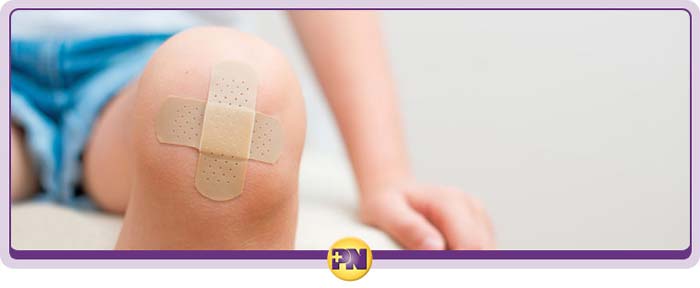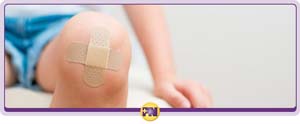Urgent Care for Lacerations Care in Rockville, MD
At Physicians Now Urgent Care and Walk-In Clinic, we have experience treating lacerations of various types. Visit us today to get specialized and comprehensive care. Contact now, walk in, or reserve your spot online! Our urgent care is conveniently located at 15215 Shady Grove Road, Suite 100, Rockville, MD 20850.


Table of Contents:
What is a laceration?
Can lacerations be treated at Home?
When do doctors recommend stitches?
When stitches might not be an appropriate option?
How are stitches removed?
When you need care for a laceration or require stitches, Physicians Now urgent Care and Walk-In Clinic can help you immediately, without having to make an appointment. Just reserve your spot!
Lacerations are cuts on the skin. While incisions are cuts produced by a sharp object such as glass or a razor, lacerations are blunter and irregular. Not all lacerations need stitches. In fact, small lacerations can care for right at home.
Small lacerations can be cleaned at home and covered with a sterile adhesive strip or clean gauze and tape if they fit the following criteria:
• The bleeding stops in 10 minutes or less
• The cut is not on the face (especially on the mouth or near the eyes)
• The cut is small and not very deep (not more than 1/4 inch deep)
If your wound does not fit this description, you might need stitches. Stitches are not only necessary to stop the bleeding, but they also help speed up healing and prevent infections.
If you have diabetes, chronic kidney failure, or a suppressed immune system, your wounds might not heal as fast or as well as other people, so you might need stitches even in relatively small lacerations. When in doubt, come to Physicians Now Urgent Care and Walk-In Clinic in Rockville, MD, and speak to one of our providers.
Sutures (or stitches) are the most common method used by providers to close up a laceration. Doctors use non-dissolvable stitches made of nylon or polypropylene material to close the outer layer of wounds, while dissolvable sutures made of polyglycolic and polygalactic acid are used to close deeper layers of skin and tissue. The dissolvable sutures are slowly absorbed by the body over a period of up to three months and as a result, require no removal.
While stitches might be the most popular choice for closing lacerations, other options might be better in certain cases. On the scalp, for example, stitches are either difficult or impossible to use, depending on the area. In this case, a provider might use staples to close a deep laceration.
Skin glue might also be an option, especially in smaller lacerations or on lacerations located in areas where there’s no tension. Joints, for example, have a lot of tension because they need to bend and move constantly, so glue might not work and stitches might be needed instead. But a not-so-deep laceration on the bicep, for example, could be closed with glue.
If you or your child has had stitches, your provider will tell you when and how they need to be removed. Most sutures are removed within 10 days and as soon as five days in areas like the face, where the blood supply is rich – which makes healing faster. The longer the sutures are left in, the higher the risk of scarring, so providers typically try to remove stitches as soon as possible.
However, keep in mind that the main goal of sutures is to help your wound heal, so if they need to stay in place for a longer period of time your provider might choose to do that.
Sutures are easy to remove with surgical scissors. After the stitches have been removed, your provider will examine the wound to ensure it’s healing properly and properly closed.
Although you might be tempted to remove the stitches at home, it’s safer to go back to your provider for this. It’s easy to re-injure the area – or even cause an infection — if you’re not careful. This will result in a feeling of general illness and may require antibiotics for you to get well. Contact us today for more information about lacerations and stitches. We serve patients from Rockville MD, Travilah MD, Lone Oak MD, Colesville Park MD, Redland MD, Darnestown MD, Anscroft MD, and Wheaton-Glenmont MD.

Additional Services You May Need
▸Illness
▸Injuries
▸Acute Care
▸Asthma
▸Head Injury
▸Cholesterol Management
▸Diabetes
▸Flu Shot
▸Heart Disease
▸RSV Testing
▸Pre-Op Clearance

Additional Services You May Need
▸Illness
▸Injuries
▸Acute Care
▸Asthma
▸Head Injury
▸Cholesterol Management
▸Diabetes
▸Flu Shot
▸Heart Disease
▸RSV Testing
▸Pre-Op Clearance





